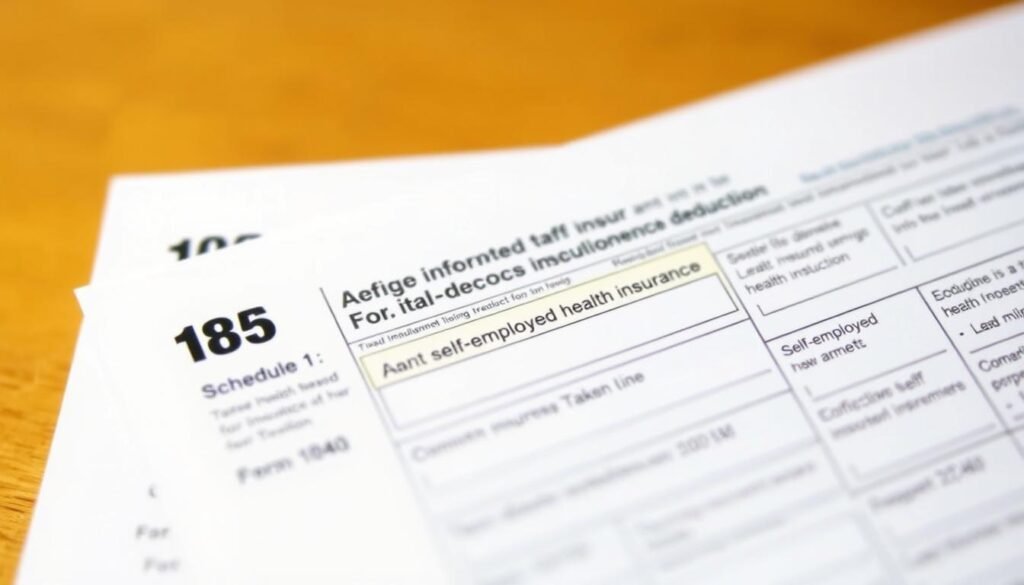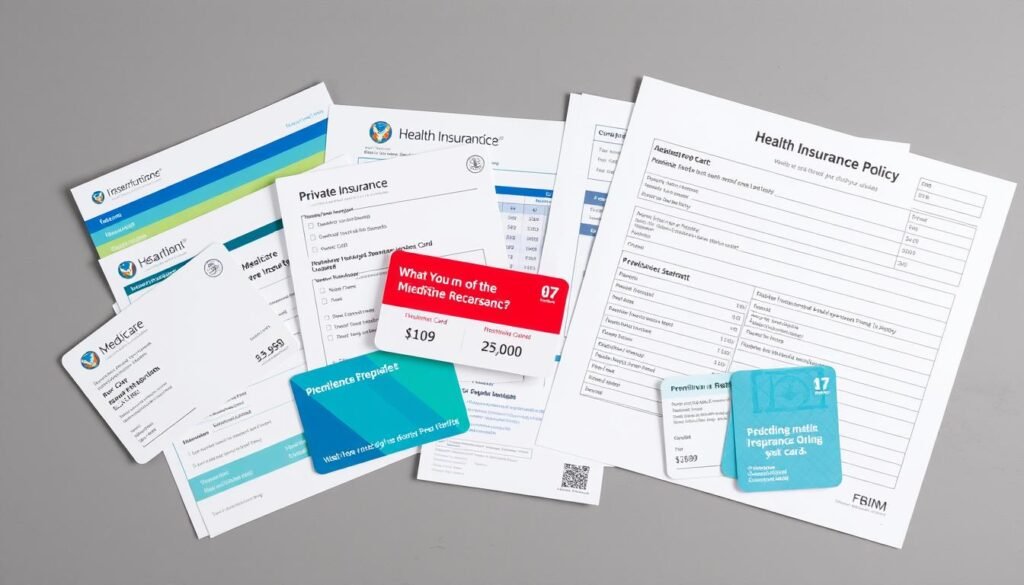Understanding Health Insurance Premium Tax Deductions
Health insurance premiums may be tax deductible depending on your employment status, how you pay for coverage, and whether you itemize deductions. The IRS has specific rules governing when and how much of your health insurance costs can be written off on your tax return.
Understanding which health insurance premiums are tax deductible can help maximize your tax savings.
Before diving into specific scenarios, it’s important to understand that health insurance premium deductions fall into several categories based on your situation:
- Self-employed individuals can deduct premiums as an adjustment to income
- Employees with employer-sponsored plans have limited deduction options
- Individuals with marketplace plans may qualify for premium tax credits
- Medical expenses (including premiums) may be itemized if they exceed 7.5% of your adjusted gross income
Self-Employed Health Insurance Premium Deductions
If you’re self-employed, you may be eligible for one of the most valuable tax breaks related to health insurance premiums. Self-employed individuals can deduct 100% of health insurance premiums for themselves, their spouse, and dependents as an adjustment to income.

Eligibility Requirements for Self-Employed Deductions
To qualify for the self-employed health insurance deduction, you must meet the following criteria:
- Your business must generate a net profit for the year
- You cannot be eligible for coverage through your spouse’s employer-sponsored plan
- The deduction cannot exceed your business’s net profit
- For partial-year eligibility, you can only deduct premiums paid during eligible months
How to Claim the Self-Employed Health Insurance Deduction
This deduction is taken on Schedule 1 of Form 1040 as an adjustment to income, which means you benefit whether you itemize deductions or take the standard deduction. This adjustment directly reduces your adjusted gross income (AGI), potentially qualifying you for other tax benefits that phase out at higher income levels.
Important: The self-employed health insurance deduction is calculated on Form 7206 and then transferred to Schedule 1 of your Form 1040. This is considered an “above-the-line” deduction, meaning it reduces your adjusted gross income even if you don’t itemize deductions.

Self-employed health insurance deductions are entered on Schedule 1 of Form 1040.
Example: Self-Employed Freelancer Health Insurance Deduction
Sarah is a self-employed graphic designer who earned $75,000 in net business income in 2024. She paid $8,400 in health insurance premiums for herself and her family during the year. Since her business was profitable and she wasn’t eligible for coverage through a spouse’s employer, Sarah can deduct the entire $8,400 as an adjustment to income on her tax return.
This deduction reduces her adjusted gross income from $75,000 to $66,600, potentially qualifying her for additional tax benefits and reducing her overall tax liability.
Deducting Premiums for Employer-Sponsored Health Insurance
If you receive health insurance through your employer, your deduction options are more limited. Most employees pay their portion of health insurance premiums with pre-tax dollars, which means these amounts are already excluded from taxable income.
Pre-Tax vs. After-Tax Premium Payments
Understanding how your premiums are paid is crucial for determining potential tax deductions:
Pre-Tax Premium Payments
Most employer plans deduct premiums from your paycheck before taxes are calculated. These premiums:
- Already reduce your taxable income
- Cannot be deducted again on your tax return
- Will be reflected in the lower wages reported on your W-2
After-Tax Premium Payments
If you pay premiums with after-tax dollars, these amounts:
- May qualify as itemized medical expenses
- Must exceed 7.5% of your AGI along with other medical expenses
- Require you to itemize deductions rather than take the standard deduction
Warning: If your employer reports your health insurance premiums as “pre-tax” on your pay stub or W-2, you cannot claim these premiums as a deduction on your tax return. Doing so would be claiming the same tax benefit twice.
Itemizing Health Insurance Premiums as Medical Expenses
If you aren’t self-employed but pay for health insurance with after-tax dollars, you may be able to include these premiums as part of your itemized medical expense deductions. This approach has significant limitations but can be valuable in certain situations.
The 7.5% AGI Threshold
The most significant limitation for itemizing medical expenses is that you can only deduct the portion that exceeds 7.5% of your adjusted gross income (AGI). This threshold makes it difficult for many taxpayers to benefit from medical expense deductions.
“For the 2024 tax year, you can deduct only the amount of your total medical expenses that exceed 7.5% of your adjusted gross income.”
Types of Health Insurance Premiums That Qualify
When itemizing medical expenses, the following types of health insurance premiums generally qualify:
- Medical and dental insurance premiums paid with after-tax dollars
- Long-term care insurance premiums (subject to age-based limitations)
- Medicare Part B, Part D, and supplemental policy premiums
- COBRA continuation coverage premiums
- Qualified long-term care insurance premiums (with age-based limits)

Various types of health insurance premiums may qualify for tax deductions under different circumstances.
Example: Family Itemizing Medical Expenses
The Johnson family has an adjusted gross income of $80,000 in 2024. They paid $4,000 in after-tax health insurance premiums and had $8,000 in other qualifying medical expenses, for a total of $12,000.
The 7.5% AGI threshold for the Johnsons is $6,000 ($80,000 × 7.5%). Since their total medical expenses of $12,000 exceed this threshold by $6,000, they can deduct $6,000 as an itemized deduction on Schedule A.
For this deduction to benefit the Johnsons, their total itemized deductions (including medical expenses, mortgage interest, charitable contributions, etc.) would need to exceed the standard deduction amount for their filing status.
Long-Term Care Insurance Premium Deductions
Long-term care insurance premiums are treated somewhat differently than regular health insurance premiums. The IRS allows for the deduction of qualified long-term care insurance premiums, but with specific age-based limitations.

Age-Based Deduction Limits for Long-Term Care Premiums (2024)
| Age at End of Tax Year | Maximum Deductible Amount (2024) |
| 40 and younger | $470 |
| 41 to 50 | $880 |
| 51 to 60 | $1,760 |
| 61 to 70 | $4,710 |
| Over 70 | $5,880 |
These age-based limits apply whether you’re claiming the self-employed health insurance deduction or itemizing medical expenses. For self-employed individuals, long-term care premiums (up to the age-based limits) can be included in your self-employed health insurance deduction.
Tax Treatment of Marketplace Health Insurance Plans
If you purchase health insurance through the Health Insurance Marketplace (Healthcare.gov or state exchanges), you may qualify for premium tax credits to help offset the cost of coverage. These tax credits complicate the deductibility of your premium payments.

Premium Tax Credits vs. Premium Deductions
When you receive advance premium tax credits to reduce your monthly premium payments, you can only deduct the portion of premiums you actually paid out-of-pocket. The subsidized portion is already a tax benefit and cannot be deducted.
Important: If you receive advance premium tax credits, you’ll receive Form 1095-A showing your total premiums and the amount of tax credits received. Only the difference (what you paid out-of-pocket) can potentially be deducted.
Self-Employed Individuals with Marketplace Plans
If you’re self-employed and purchase coverage through the Marketplace, you can include the premiums you pay out-of-pocket (after any premium tax credits) in your self-employed health insurance deduction. This creates a circular calculation that may require multiple iterations to determine the correct amounts.
Self-employed individuals with Marketplace plans must carefully calculate their premium deductions.
Health Insurance Premiums That Are Not Tax-Deductible
Not all health-related insurance premiums qualify for tax deductions. Understanding which premiums don’t qualify can help you avoid claiming improper deductions on your tax return.
Non-Qualifying Premium Types
The following types of insurance premiums generally do not qualify for tax deductions:
- Life insurance premiums
- Disability insurance premiums
- Policies that provide payment for loss of earnings
- Policies that pay a fixed amount for each day of hospitalization
- The portion of car insurance that covers medical expenses for accident injuries
- Health insurance premiums paid with pre-tax dollars through an employer plan
- Premiums for policies that provide only cosmetic procedures
Warning: Claiming non-qualifying premium payments as tax deductions could trigger an IRS audit. When in doubt, consult with a tax professional about specific premium types.
Health Insurance Premiums and Tax-Advantaged Accounts
Health Savings Accounts (HSAs) and Flexible Spending Arrangements (FSAs) offer tax advantages for healthcare expenses, but there are important rules regarding using these accounts for insurance premiums.
HSA Rules for Premium Payments
Generally, you cannot use HSA funds to pay for health insurance premiums. However, there are a few exceptions:
- COBRA continuation coverage premiums
- Qualified long-term care insurance premiums (subject to age-based limits)
- Health insurance premiums while receiving unemployment benefits
- Medicare premiums for those age 65 and older (but not Medicare supplement policies)
FSA Limitations
Flexible Spending Arrangements (FSAs) generally cannot be used to pay for health insurance premiums under any circumstances. FSA funds are limited to qualifying medical expenses not covered by insurance, such as copays, deductibles, and qualified medical services.

FSA funds can be used for many medical expenses but generally not for insurance premiums.
Frequently Asked Questions About Health Insurance Premium Tax Deductions
Can I deduct Medicare premiums on my tax return?
Yes, Medicare premiums can be tax-deductible. Medicare Part B, Part D, and Medicare Advantage (Part C) premiums can be included as medical expenses if you itemize deductions. For self-employed individuals, Medicare premiums can be included in the self-employed health insurance deduction. Most people don’t pay premiums for Medicare Part A, but if you do, these may also be deductible.
What if my employer pays part of my health insurance premium?
You can only deduct the portion of premiums that you pay yourself, and only if you pay with after-tax dollars. Most employer-sponsored plans deduct your portion of premiums from your paycheck before taxes (pre-tax), which means these amounts are already excluded from your taxable income and cannot be deducted again on your tax return.
Can I deduct dental and vision insurance premiums?
Yes, dental and vision insurance premiums follow the same rules as health insurance premiums. Self-employed individuals can include these in their self-employed health insurance deduction. Others can include them as medical expenses if itemizing deductions, subject to the 7.5% AGI threshold.
Are health insurance premiums deductible if I take the standard deduction?
For most taxpayers, health insurance premiums can only be deducted if you itemize deductions. However, self-employed individuals can deduct their health insurance premiums as an adjustment to income on Schedule 1, which benefits you whether you itemize or take the standard deduction.
Can I deduct premiums paid for my adult children’s health insurance?
You can deduct premiums paid for your adult children’s health insurance only if they qualify as your dependents for tax purposes. For self-employed individuals, you can include premiums paid for dependents in your self-employed health insurance deduction. For itemized medical expenses, you can only include premiums paid for yourself, your spouse, and your dependents.

Record-Keeping Requirements for Health Insurance Premium Deductions
Proper documentation is essential when claiming health insurance premium deductions. The IRS may request proof of your premium payments and eligibility for deductions during an audit.
Documents to Keep
Maintain the following records for at least three years after filing your tax return:
- Insurance premium statements showing amounts paid
- Proof of payment (canceled checks, bank statements, credit card statements)
- Form 1095-A if you purchased coverage through the Marketplace
- Form 1095-B or 1095-C from your insurance provider or employer
- Medicare premium notices (for Medicare recipients)
- Documentation of any reimbursements received for premium payments
Tip: Create a dedicated folder or digital file for health insurance premium documentation each tax year. This organization will save time and stress if you need to reference these documents when preparing your tax return or responding to IRS inquiries.
Changes to Health Insurance Premium Deductions for 2024
Tax laws regarding health insurance premium deductions can change from year to year. Staying informed about recent changes helps ensure you claim all eligible deductions while remaining compliant with current tax law.

Key Updates for the 2024 Tax Year
For the 2024 tax year (returns filed in 2025), be aware of these important points:
- The medical expense deduction threshold remains at 7.5% of AGI
- Long-term care premium deduction limits have been adjusted for inflation (see table in previous section)
- Premium tax credit eligibility has been expanded for Marketplace plans
- Self-employed health insurance deduction rules remain largely unchanged
“Taxpayers should review current IRS publications or consult with a tax professional to ensure they understand the most up-to-date rules regarding health insurance premium deductions.”
Maximizing Your Health Insurance Premium Tax Deductions
Understanding the rules for health insurance premium tax deductions can help you minimize your tax liability while remaining compliant with tax laws. The best approach depends on your specific situation, including employment status, income level, and total medical expenses.

Key Takeaways
- Self-employed individuals can deduct health insurance premiums as an adjustment to income
- Employees with employer-sponsored plans typically cannot deduct premiums paid with pre-tax dollars
- Itemized medical expense deductions must exceed 7.5% of your AGI
- Long-term care insurance premiums are deductible subject to age-based limits
- Proper documentation is essential for supporting premium deduction claims
- Tax laws change regularly, so stay informed about current rules
Tax situations vary widely, and health insurance premium deductions involve complex rules with many exceptions. While this guide provides a comprehensive overview, your specific circumstances may require personalized advice.
Get Expert Tax Advice for Your Specific Situation
Tax rules regarding health insurance premiums can be complex. A qualified tax professional can help you identify all eligible deductions based on your unique circumstances and ensure your tax return is accurate and compliant.




